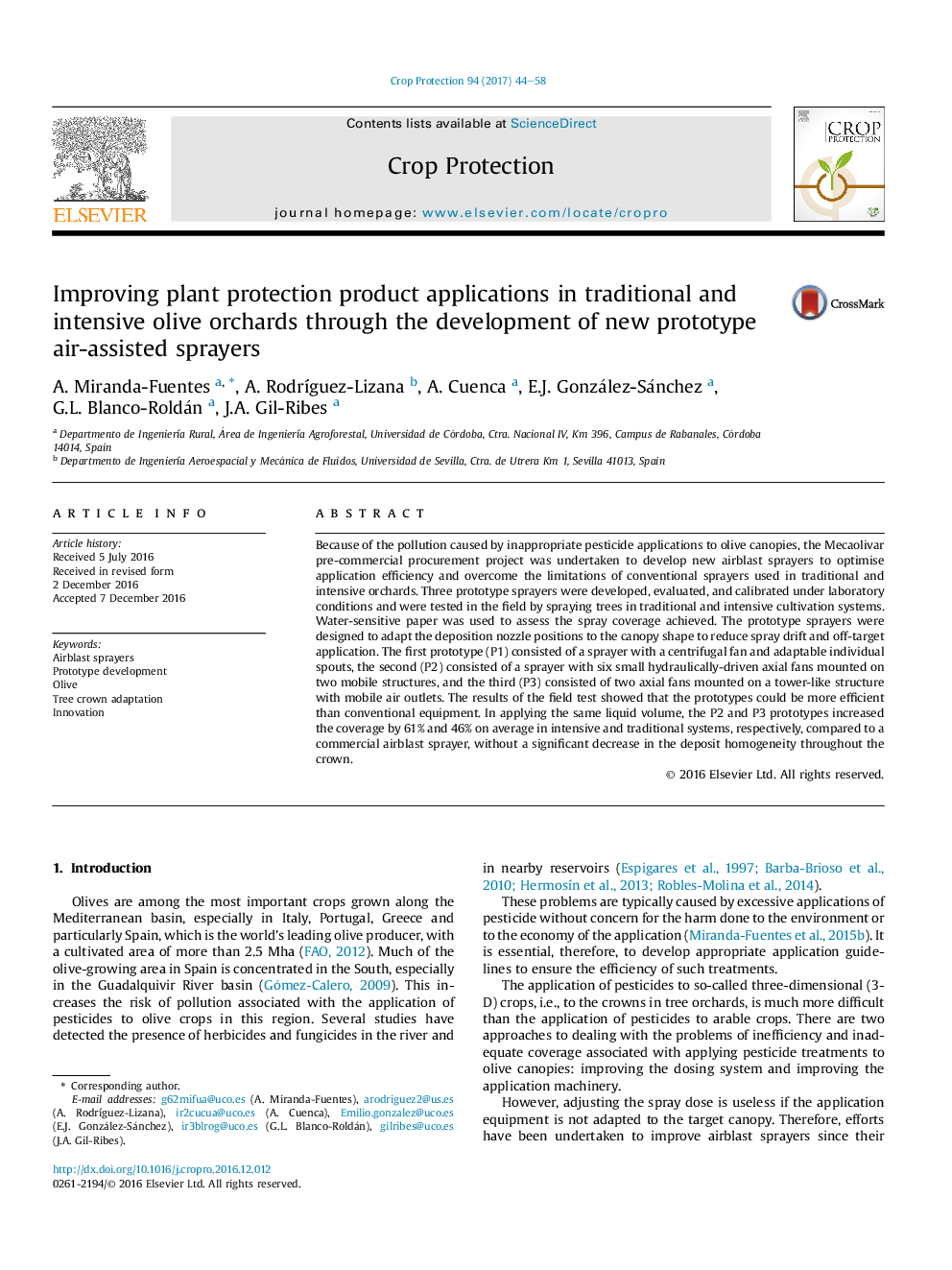| Article ID | Journal | Published Year | Pages | File Type |
|---|---|---|---|---|
| 5760922 | Crop Protection | 2017 | 15 Pages |
Abstract
Because of the pollution caused by inappropriate pesticide applications to olive canopies, the Mecaolivar pre-commercial procurement project was undertaken to develop new airblast sprayers to optimise application efficiency and overcome the limitations of conventional sprayers used in traditional and intensive orchards. Three prototype sprayers were developed, evaluated, and calibrated under laboratory conditions and were tested in the field by spraying trees in traditional and intensive cultivation systems. Water-sensitive paper was used to assess the spray coverage achieved. The prototype sprayers were designed to adapt the deposition nozzle positions to the canopy shape to reduce spray drift and off-target application. The first prototype (P1) consisted of a sprayer with a centrifugal fan and adaptable individual spouts, the second (P2) consisted of a sprayer with six small hydraulically-driven axial fans mounted on two mobile structures, and the third (P3) consisted of two axial fans mounted on a tower-like structure with mobile air outlets. The results of the field test showed that the prototypes could be more efficient than conventional equipment. In applying the same liquid volume, the P2 and P3 prototypes increased the coverage by 61% and 46% on average in intensive and traditional systems, respectively, compared to a commercial airblast sprayer, without a significant decrease in the deposit homogeneity throughout the crown.
Keywords
Related Topics
Life Sciences
Agricultural and Biological Sciences
Agronomy and Crop Science
Authors
A. Miranda-Fuentes, A. RodrÃguez-Lizana, A. Cuenca, E.J. González-Sánchez, G.L. Blanco-Roldán, J.A. Gil-Ribes,
